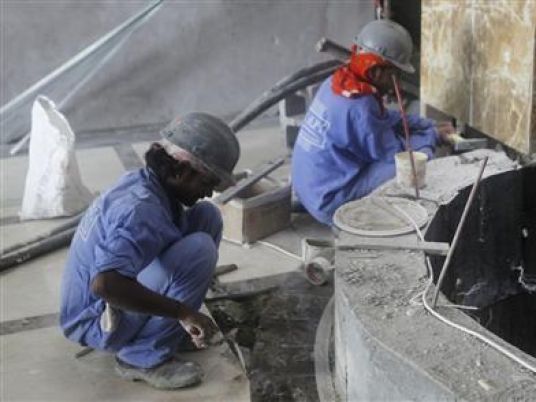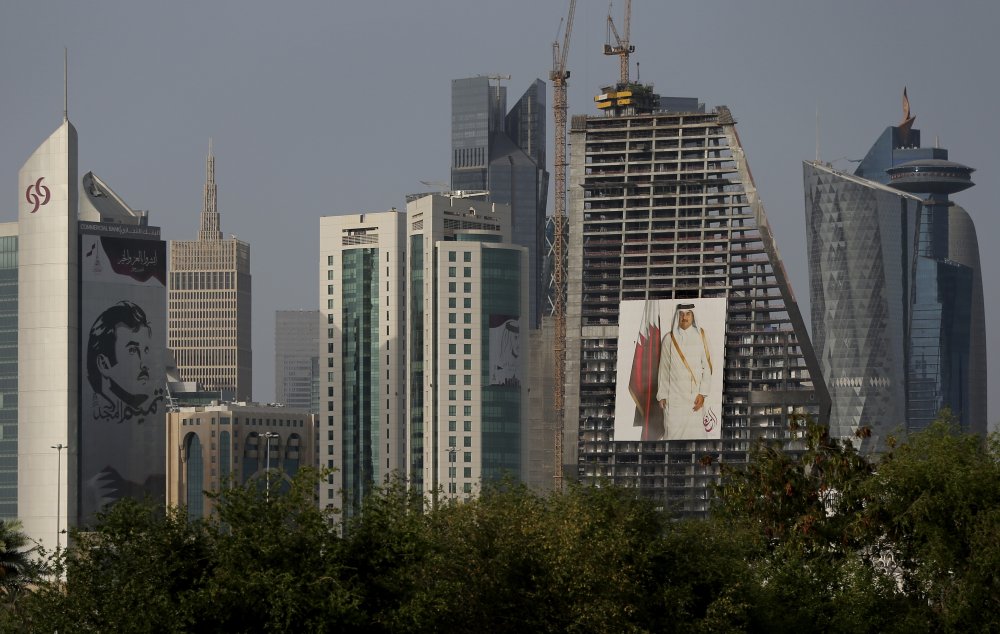
Qatar, host of the 2022 football World Cup, pledged Sunday to introduce new legislation to replace the controversial "kafala" sponsorship system and improve conditions for migrant workers by early 2015.
The current law, which limits the rights of movement for foreign workers, would make way for legislation that was "currently under review," said the labour and social affairs ministry.
"We expect to make announcements about new legislation by early next year," it said in a statement.
Qatar's treatment of its massive foreign workforce has come under the international spotlight as it steps up construction of facilities for the world football showcase in 2022.
Human rights groups and FIFPro, the global union representing footballers, have urged Qatar to abolish the kafala system, which enables employers to prevent their foreign workers from leaving the country or changing jobs and has been likened to modern-day slavery.
The oil-rich emirate said in May that it would replace the sponsorship system with one based on employment contracts.
Under the new legislation, the exit permit that foreign workers need to leave the country is to be replaced by a system under which permission is granted automatically after a three-day grace period.
Foreign workers would also be able to change jobs at the end of their contracts, without the need for the certificate they currently require from their previous employers showing they have no objections.
Those on open-ended contracts would be entitled to change jobs after five years.
And employers who confiscate the passports of their workers would face tougher penalties.
"We intend to effect meaningful and lasting change for the benefit of all those who live and work in Qatar," the labour ministry said Sunday.
On Thursday, football's world governing body FIFA cleared Qatar of corruption and ruled out a re-vote to decide the host of the competition despite widespread allegations of wrongdoings.
We welcome scrutiny
Qatar said it never doubted the "clean" record by which it won the bid to host the tournament.
"We welcome the scrutiny of international organisations," the labour ministry said on Sunday.
"We continue to welcome constructive criticism and feedback, as well as positive acknowledgement of the changes we have made."
The ministry encouraged international organisations to share information on specific issues or violations to investigate and "swiftly remedy them".
On Wednesday, Amnesty International slammed Doha's steps to end abuses of migrant workers building facilities for the football tournament as "woefully insufficent".
"Urgent action is needed to ensure we do not end up with a World Cup tournament that is built on forced labour and exploitation," said Amnesty's Sherif Elsayed-Ali.
He accused Qatar of only adopting limited changes since the promises it made in May.
"Six months later, only a handful of the limited measures announced in May have even been partially implemented," he said.
Restrictions in Qatar's labour law affect all foreign workers regardless of their posts.
In December, French footballer Zahir Belounis was able to finally depart Qatar after being stranded for a year as his club Al-Jaish had refused to grant him an exit permit over a pay dispute.
Belounis had to sign a settlement document before he was allowed to leave the Gulf state for France, where he was planning to file a lawsuit against the Qatari club, his lawyer said at the time.
The International Trade Union Confederation warned in June that as many as 4,000 migrant workers could die in construction site accidents by the time the 2022 tournament kicks off.
The labour ministry said Qatar's fast growing economy was providing jobs for over 1.6 million foreign workers, insisting many "earn more and live in better conditions than in their home countries".
"We believe that the people helping us build our country deserve to be fairly paid, humanely treated and protected against exploitation. That is why we are reforming our labour laws and practices," it added.




